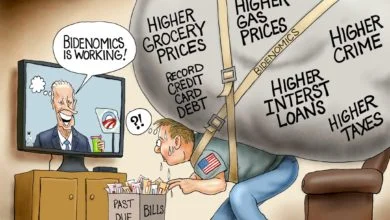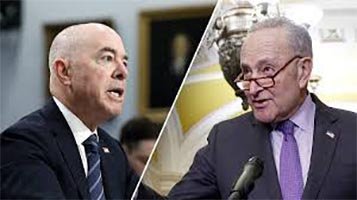Florida’s Police Power(s) in the Time of a Dangerous Pandemic

The rapid spread of the coronavirus had led many states and local governments to order non-essential businesses, restaurants, beaches, etc. to close. One such state is the State of Florida. As a result, some have questioned the constitutionality of such conduct. In other words, generally speaking, can a state actually force businesses to temporarily shut down for purpose of public health? Generally speaking, the answer is yes, under certain circumstances.
Sadly, the drastic measures that have been implemented have hurt the economy. After all, businesses have been forced to temporarily close, people are losing income, and workers are being laid off. One Florida city, for example, recently ordered the closing of beaches, parks, libraries, restaurants, and bars to try to reduce the spread of the virus. Another Florida county was ordered to close all non-essential businesses, beaches, restaurants, etc. On March 26, 2020, the City Manager of Boca Raton, Florida issued an Emergency Stay at Home, Stay Safe Order.
Generally speaking, states possess general and inherent police powers that are limited by both the state and federal Constitution(s). In other words, a state governor can act pursuant to this power so long as the action is not limited/prohibited. In an article in The Dispatch, David French notes:
In 1824, the Supreme Court observed in Gibbons v. Ogden that sovereign state authority includes the authority to enact “quarantine laws” and “health laws of every description.” Think of it like this: Just as the president and the federal government act at the peak of their powers when national security is threatened, America’s governors are often at the peak of their power when public health is at stake.
In an article in the AMA Journal of Ethics, Dr. Sarah Fujiwara states:
“The 14th Amendment asserts that no state shall make or enforce any law abridging the privileges or immunities of citizens of the United States or deprive any person of life, liberty, or property without due process of the law. The Supreme Court recognizes a 14th-Amendment guaranty of substantive due process that protects US residents against arbitrary legislative actions; this constitutional guarantee requires that legislation not be unreasonable, arbitrary, or capricious and that it have a substantial relation to the legislative objective. Essentially, though, this provision demands only minimal scrutiny or rational review of the enacted legislation; the law need only be rationally related to a legitimate government purpose to be declared constitutional. Further, the Supreme Court has recognized each state’s “police power,” which gives the state authority to enact health laws of every description, including quarantine and vaccination laws, to protect its citizens.”
In Jacobson v. Massachusetts, which is not entirely analogous to the current crisis, the United States Supreme Court considered the issue of mandatory vaccinations with regard to a smallpox outbreak in the context of the 14th Amendment. In discussing the Jacobson case, the AMA Journal of Ethics explained:
There the Court ruled that the police power of a state absolutely included reasonable regulations established by legislature to protect public health and safety. Such regulations do not violate the 14th Amendment right to liberty because they fall within the many restraints to which every person is necessarily subjected for the common good. Real liberty for all cannot exist if each individual is allowed to act without regard to the injury that his or her actions might cause others; liberty is constrained by law. The Court went on to determine in Jacobson that a state may require vaccination if the board of health deems it necessary for public health or safety.
While the Gibbons case confirms a state’s inherent police power, this power is not unlimited. More particularly, care must be taken to ensure that an order or law of any sort actually serves a public health purpose. In Jacobson, the court, in discussing the state’s police power, stated:
“Although this court has refrained from any attempt to define the limits of that power, yet it has distinctly recognized the authority of a State to enact quarantine laws and “health laws of every description;” indeed, all laws that relate to matters completely within its territory and which do not, by their necessary operation, affect the people of other States. According to settled principles, the police power of a State must be held to embrace, at least, such reasonable regulations established directly by legislative enactment as will protect the public health and the public safety. It is equally true that the State may invest local bodies called into existence for purposes of local administration with authority in some appropriate way to safeguard the public health and the public safety. The mode or manner in which those results are to be accomplished is within the discretion of the State, subject, of course, so far as Federal power is concerned, only to the condition that no rule prescribed by a State, nor any regulation adopted by a local governmental agency acting under the sanction of state legislation, shall contravene the Constitution of the United States or infringe any right granted or secured by that instrument. A local enactment or regulation, even if based on the acknowledged police powers of a State, must always yield in case of conflict with the exercise by the General Government of any power it possesses under the Constitution, or with any right which that instrument gives or secures.”
When considering the recent emergency orders in Florida, does closing down the beaches and/or non-essential businesses serve to prevent the spread of the coronavirus and to protect the public health? On the surface, it would appear so because of the ease in which this virus is transmitted, the fact that people can transmit it while asymptomatic, and the impact that the virus can have on the elderly and those who are immuno-compromised (even younger individuals are being impacted more significantly than originally thought). As a matter of fact, one Florida lawyer recently filed a lawsuit asking Florida Governor Ron DeSantis of Florida to issue a safer statewide at-home-order to protect the public against the coronavirus.
However, even if a Florida law or order serves a public health purpose, another concern pertains to whether it violates a fundamental right. If so, the law or order would likely have to pass a higher, more stringent level of scrutiny which would also likely trigger an analysis as to whether the law or order was the least restrictive means available to accomplish the public health purpose. For example, what if a Florida order/law compelled religious institutions to temporarily close for purposes of public health? Would this violate the First Amendment? In 1990, in the case of Employment Div., Dep’t of Human Res. v. Smith, the U.S. Supreme Court ruled that neutral, generally applicable laws are ordinarily constitutional even if they infringe upon religious exercise. In Smith, the court stated:
We have never held that an individual’s religious beliefs excuse him from compliance with an otherwise valid law prohibiting conduct that the State is free to regulate. On the contrary, the record of more than a century of our free exercise jurisprudence contradicts that proposition. As described succinctly by Justice Frankfurter in Minersville School Dist. Bd. of Educ. v. Gobitis, 310 U.S. 586, 594-595 (1940):
Conscientious scruples have not, in the course of the long struggle for religious toleration, relieved the individual from obedience to a general law not aimed at the promotion or restriction of religious beliefs. The mere possession of religious convictions which contradict the relevant concerns of a political society does not relieve the citizen from the discharge of political responsibilities.
(Footnote omitted.) We first had occasion to assert that principle in Reynolds v. United States, 98 U.S. 145 (1879), where we rejected the claim that criminal laws against polygamy could not be constitutionally applied to those whose religion commanded the practice. “Laws,” we said,
“are made for the government of actions, and while they cannot interfere with mere religious belief and opinions, they may with practices. . . . Can a man excuse his practices to the contrary because of his religious belief? To permit this would be to make the professed doctrines of religious belief superior to the law of the land, and in effect to permit every citizen to become a law unto himself.”
Id. at 166-167.
Subsequent decisions have consistently held that the right of free exercise does not relieve an individual of the obligation to comply with a “valid and neutral law of general applicability on the ground that the law proscribes (or prescribes) conduct that his religion prescribes (or proscribes).”
United States v. Lee, 455 U.S. 252, 263, n. 3 (1982) (STEVENS, J., concurring in judgment)
Therefore, per Smith, if the Florida order was a neutral law of general applicability (i.e. a ban that temporarily limited the size of gatherings but did so equally to all gatherings for serious issues of public safety), it could very well be deemed constitutional if the intent of the order/law was not to interfere with the free exercise of religion (which would be an incidental effect), but to protect the health, welfare, and safety of its citizens. If, on the other hand, the ban solely targeted churches and permitted other types of gatherings, it could likely be attacked on constitutional grounds.
As is evident, there are some interesting questions that could arise with regard to the recent orders and closures in Florida. For example, does ordering all non-essential businesses to close constitute the least restrictive means of preventing the spread of the virus? While some businesses can conduct business remotely, others can’t. What happens to those who are unable to do so? Along these same lines, is the law or order one of general applicability, or does it single out specific types of businesses and/or treat them differently? Is the law or order indefinite in time or is it limited in time or duration? For example, Florida Statute 252.36 sets forth the powers of the governor in an emergency and states that no state of emergency may continue for longer than 60 days unless renewed by the Governor.
While the state’s police power(s) is/are vast, they are not limitless. Generally speaking, states have the right to implement laws or orders to protect the public health. In this case, the question is whether they can force all non-essential businesses to shut down for a specified period of time under the Constitution and principles of due process.
This article is intended for informational purposes only. It is not intended to solicit business or to provide legal advice. You should not take, or refrain from taking, any legal action based upon the information contained in this article without first seeking professional counsel.
Mr. Hakim is a writer, commentator and a practicing attorney. His articles have been published in The Washington Examiner, The Daily Caller, The Federalist, The Epoch Times, The Western Journal, American Thinker and other online publications.




